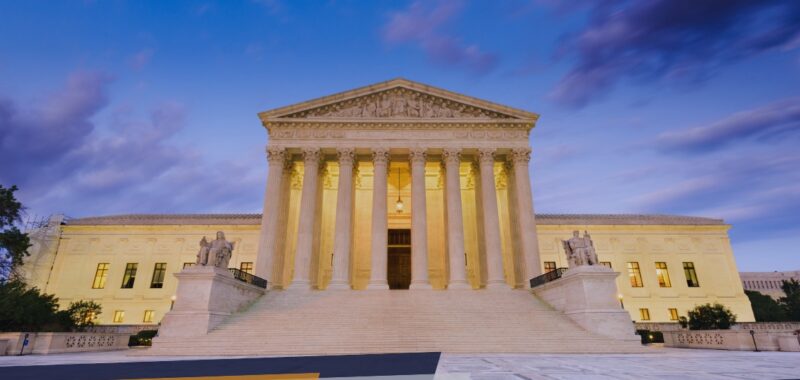With the Chevron deference now void, opinions from housing organizations and experts are split on how this might impact regulatory decision-making within the industry moving forward.
Earlier this month, the Supreme Court overturned the so-called “Chevron deference,” a legal principle originally set in Chevron U.S.A. Inc. vs. Natural Resources Defense Council, Inc that allowed courts to defer to the appropriate agencies to reasonably interpret ambiguous statutes when disputes arose. Now, judges will need to independently interpret statutes without deferring to relevant agencies.
The overall consensus? It’s a decision that will very likely influence important regulatory decisions related to housing. While many housing organizations see the benefits, others are more wary, concerned it could set back fair housing protections. Some real estate-specific entities, including the National Association of REALTORS®, have declined to comment one way or another on the change.
In a blog post, Ayiesha Beverly, general counsel, and Briana Anderson, certified paralegal, both with the National Apartment Association, stated that overturning the decision puts more regulatory power in the court’s hands, which will subsequently have implications from all spokes of the federal government that interact with the housing industry.
Particularly, it will impact regulatory decisions involving the Department of Housing and Urban Development (HUD) and the Consumer Financial Protection Bureau—agencies that have used the Chevron doctrine in the past to interpret regulations that impact owners, operators and developers of rental housing, including the Fair Housing Act, the Violence Against Women’s Act and the Equal Credit Opportunity Act.
The pair interviewed Jonathan Y. Ellis, a Supreme Court and appellate lawyer, and co-chair of the appeals and issues team at McGuireWoods, LLP, who said that the decision would make it more difficult for agencies to defend their regulations affecting the rental housing industry, beginning with the FCC’s new digital-discrimination rule.
“And when combined with the court’s decision in Corner Post, the court has opened the door for challenges to even longstanding regulations by new entrants in the rental housing market,” he added.
Sharon Cornelissen, director of housing at the Consumer Federation of America, said the decision would have far-reaching consequences in the ways Americans are housed.
“Over the last 40 years, this jurisprudence has supported the ability of federal agencies to effectively regulate American corporations and protect consumers. Within housing this includes the ability of agencies to implement federally mandated rental protections and housing counseling, offer fair housing oversight, enforce federal emission and building standards, and protect homeowners against exploitative mortgage products.”
Overturning Chevron, she said, risks upending these types of decisions, making them “all but impossible” and allowing the “worst acting corporations and their trade groups to gridlock policymaking by tying decisions up in courts.”
On the flip side, the National Association of Home Builders (NAHB) claims the decision as a major victory for the housing community. The organization said it has a long history of opposing Chevron because it allows federal agencies to write the laws, enforce the laws and interpret the laws.
With Chevron overturned, said NAHB, federal agencies that builders and developers routinely interact with, including HUD, the Environmental Protection Agency and the Department of Labor, will have “less discretion to impose new regulations that Congress didn’t clearly authorize.”
“Today’s Supreme Court ruling is an important step forward to advance meaningful regulatory reform because it means that federal agencies can no longer continuously change the law—and the intent of Congress—by implementing their own interpretation of statutes as long as those interpretations are viewed as being ‘reasonable,’” said NAHB chairman Carl Harris.
Likewise, Marty Green, principal at Polunsky Beitel Green, said the decision is welcome news to the mortgage industry.
“One of the principal industry concerns about the vast power granted to the Consumer Financial Protection Bureau was that these powers were too insulated from review, particularly because the Chevron doctrine would require courts to give deference to the CFPB’s interpretations of statutes,” he said.
“Today’s decision by the Supreme Court restores equilibrium by no longer requiring courts to place undue weight on a federal agency’s interpretation of laws and restoring the interpretive role fully to the courts where it belongs,” Green added.

